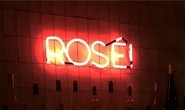óæå ïðîøëî 18 August
1920 : Amendment on the right of women to vote is ratifiedOn August 18, 1920, in the United States, the 19th Amendment to the Constitution, giving women the right to vote is ratified by Tennessee. The majority of two thirds of the States which ratified it having been reached, the amendment entered into force. |
|
1931 : The flood of the Yangtze River at its highest levelOn August 18, 1931, in China, the flooding of the Yangtze River reached its peak. Crops were destroyed and diseases such as dysentery and typhoid were spreading. Within months, 3.7 million people died directly or indirectly because of the floods. |
|
1977 : Steve Biko arrestedOn August 18, 1977, in South Africa, the anti-apartheid activist Steve Biko was arrested by police and interrogated and tortured for 22 hours at Port Elizabeth before falling into a coma. He died on September 12 shortly after arriving in a prison in Pretoria, allegedly on hunger strike. The truth was revealed by the journalists Donald Woods and Helen Zille and had a great impact in the world. 10,000 people attended his funeral. |
|
1991 : Coup against GorbachevOn August 18, 1991, the President of the Soviet Union, Mikhail Gorbachev, is placed under house arrest in Crimea by the hard line of his government, leaders of the army and the KGB who declared the state of emergency and tried to take control of the country. Gorbatchev had undertaken a series of reforms of the country (perestroika) and a policy of openness (glasnost). Boris Yeltsin, President of the Republic of Russia, who thought that the reforms did not go fast enough, decided to call the people to rally against the coup and when the army came to arrest him in the parliament of Russia, it found it locked and defended by armed civilians. Yeltsin urged the soldiers to step back and the soldiers decided to join the resistance. The coup was a failure. Gorbachev returned to power and accentuated the reforms (dissolution of the communist party, independence of the Baltic states, market economy ...) before resigning in December 1991. |
|
2005 : Black-out on the islands of Java and BaliOn August 18, 2005, in Indonesia, a gigantic power outage broke out at 10:23 on the island of Java and spread progressively to other central Java and Bali. 100 million people were without electricity. Power was restored at the end of the afternoon. |
Öèòàòà äíÿ : 18 August
| Steve Biko The most potent weapon of the oppressor is the mind of the oppressed. |
Äíè ðîæäåíèÿ : 18 August
| Franz Joseph I, Emperor of Austria (1830) | |
| Lucienne Boyer, French singer (1903) | |
| Marcel Carné, French director (1906) | |
| Edgar Faure, French politician (1908) | |
| Caspar Weinberger, American politician (1917) | |
| Lydia Litvyak, Fighter ace in the Soviet Air Force (1921) | |
| Alain Robbe-Grillet, French writer (1922) | |
| Hugues Aufray, French singer (1929) | |
| Luc Montagnier, French virologist, Nobel Prize in Physiology or Medicine (1932) | |
| Roman Polanski, Polish director (1933) | |
| Robert Redford, American actor and director (1936) | |
| Patrick Swayze, American actor (1952) | |
| Carole Bouquet, French actress (1957) | |
| Madeleine Stowe, American actress (1958) | |
| Felipe Calderón, 56th President of Mexico (1962) | |
| Everlast , American musician (1969) | |
| Edward Norton, American actor (1969) | |
| Christian Slater, American actor (1969) | |
| Malcolm-Jamal Warner, American actor (1970) | |
| Preeti Jhangiani, Indian actress (1980) | |
| Mika, English-lebanese singer (1983) | |
| Inge Dekker, Dutch swimmer (1985) | |
| Ross McCormack, Scottish football player (1986) | |
| Elizabeth Beisel, American swimmer (1992) |
Ils nous ont quitté un 18 August
| Wanli, Emperor of China (1620) | |
| Louis de Freycinet, French explorer (1841) | |
| Honoré de Balzac, French writer (1850) | |
| Walter Chrysler, Founder of the Chrysler Corporation (1940) | |
| Anita Loos, American screenwriter (1981) | |
| Robert Novak, American journalist (2009) | |
| Kim Dae-jung, 15th President of South Korea, Nobel Peace prize (2009) |
Äð. äàòû

 Réserver ses vacances
Réserver ses vacances Àðåíäà íà îòïóñêíîå âðåìÿ
Àðåíäà íà îòïóñêíîå âðåìÿ Séjours en résidence
Séjours en résidence Ñïåöïðåäëîæåíèÿ
Ñïåöïðåäëîæåíèÿ Réserver hôtel
Réserver hôtel Ïðåáûâàíèå
Ïðåáûâàíèå Ïðîãóëêè
Ïðîãóëêè Âîäíûé ñïîðò
Âîäíûé ñïîðò Ïëÿæè è ïðèáðåæíàÿ çîíà
Ïëÿæè è ïðèáðåæíàÿ çîíà Rando
Rando Òóðèçì
Òóðèçì Ýòî èíòåðåñíî
Ýòî èíòåðåñíî
 Êèíîòåàòðû
Êèíîòåàòðû Ôèëüìû
Ôèëüìû  Ðåñòîðàíû
Ðåñòîðàíû Ðåöåïòû
Ðåöåïòû Âèäû äåÿòåëüíîñòè
Âèäû äåÿòåëüíîñòè Ðàçâëå÷åíèÿ
Ðàçâëå÷åíèÿ
 Ïðîêàò ìàøèí
Ïðîêàò ìàøèí Ferry Corse
Ferry Corse Bons plans Côte d'Azur
Bons plans Côte d'Azur Monde portée de Nice
Monde portée de Nice Áèëåò íà ñàìîëåò
Áèëåò íà ñàìîëåò
 Real Estate
Real Estate Classified Ads
Classified Ads Facebook
Facebook
 Photo of the Week
Photo of the Week Agenda of the week
Agenda of the week Calendar
Calendar Horoscope
Horoscope Events
Events Our favorites
Our favorites

